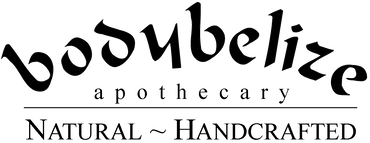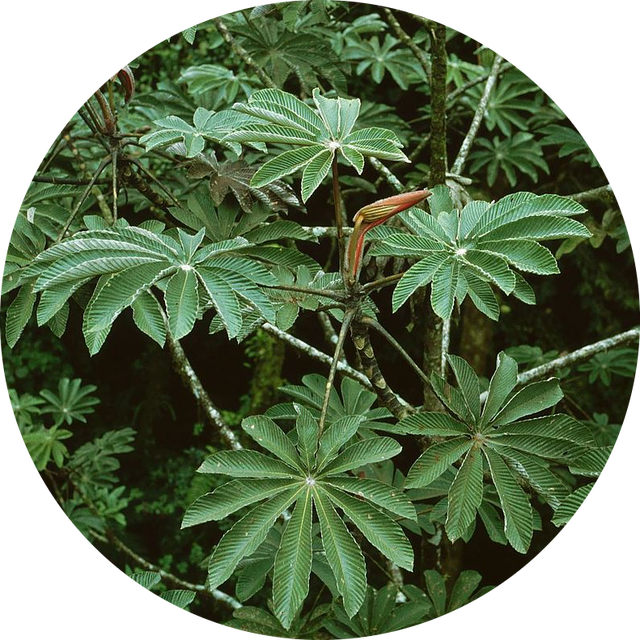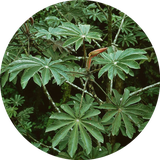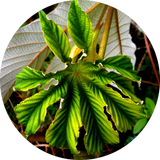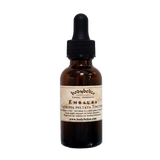- PLANT MEDICINE
- >
- Tinctures
- >
- EMBAUBA TINCTURE
EMBAUBA TINCTURE
Family: Urticaceae
Genus: Cecropia
Species: pachystachya Trécul
Synonyms: Cecropia glaziovi Snethl., Cecropia adenopus Rich., Cecropia palmata Sieber ex Miq.
Common Names: Embauba, trumpet tree, embaúva, ambá-úva, and yarumo blanco
Parts Used: Leaves, bark, and latex
Main Actions: Antioxidant, anti-inflammatory, antimicrobial
Other Actions: Antifungal, analgesic
Description: Embauba is a fast-growing tree with large, palmate leaves and a hollow trunk. It is native to Central and South America.
Tribal and Herbal Medicine Uses: Used traditionally for wound healing, for the treatment of bronchitis and other upper and lower respiratory complaints (bacterial- and viral infections) including Chronic Obstructive Pulmonary Disease (COPD), emphysema and pulmonary sarcoidosis, and as an anti-inflammatory agent.
Plant Chemicals: Flavonoids, alkaloids, tannins, triterpenes
Biological Activities and Clinical Research: Research suggests antibacterial and wound healing properties. Limited clinical studies on its efficacy.
Current Practical Uses: Primarily used in traditional medicine in tropical regions.
Main Preparation Method: Decoction, infusion, or poultice
Main Actions (in order): Antioxidant, anti-inflammatory, antimicrobial
Main Uses: Wound healing, respiratory ailments, inflammatory conditions
Properties/Actions Documented by Research: Antibacterial, wound healing
Other Properties/Actions Documented by Traditional Use: Analgesic, antifungal
Cautions: Limited information on safety, potential allergic reactions
Traditional Preparation: Leaves brewed into tea or applied topically as poultice
Contraindications: Not well-documented, caution advised for pregnant or breastfeeding women
Drug Interactions: Insufficient data, caution advised with concurrent use of medications.
Recommended dosage: 2.5 – 5ml taken in a small glass of water or juice 2 x daily on an empty stomach for better absorption.
